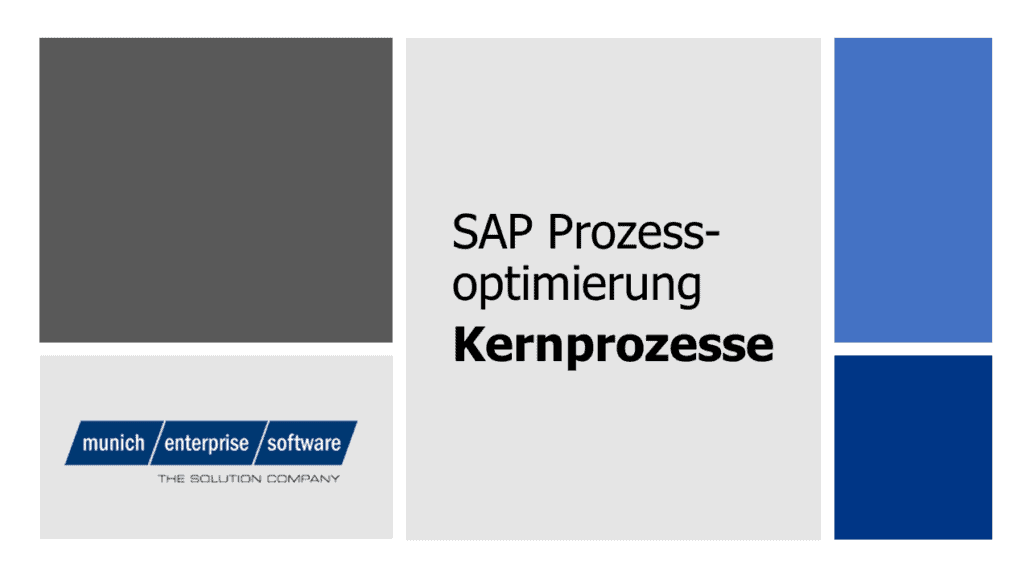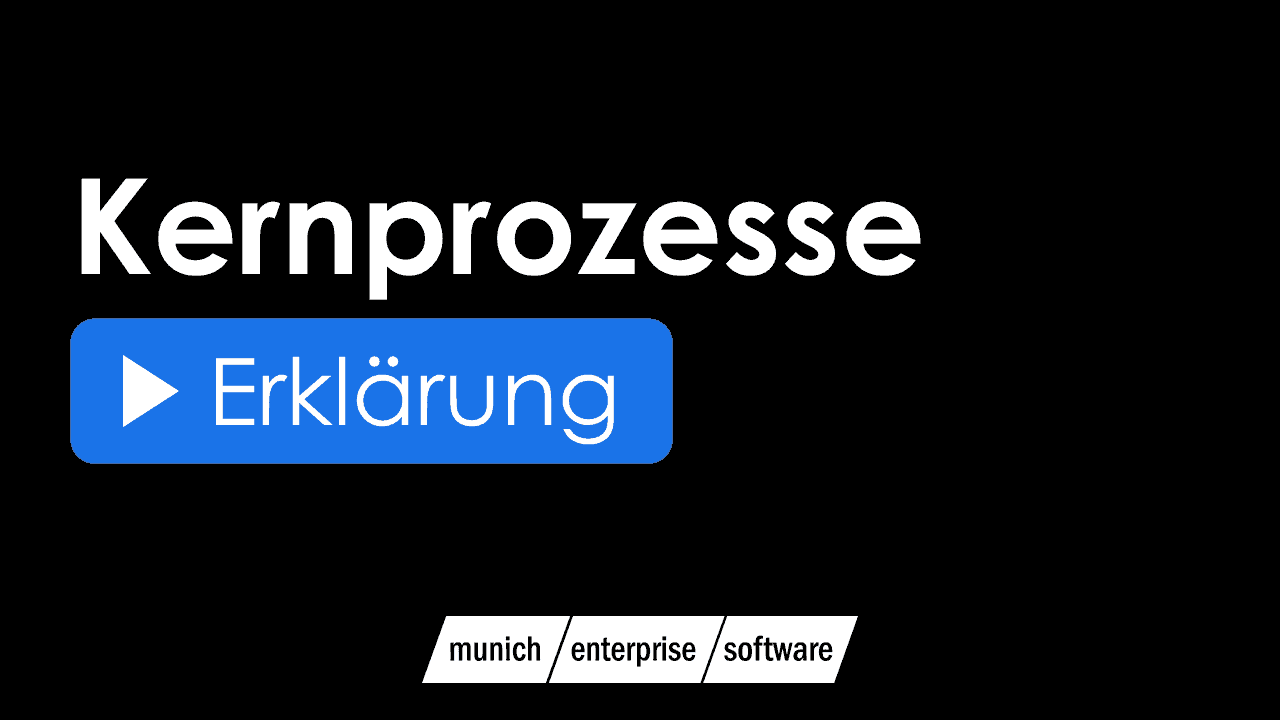What is a core process?
Core processes are the strategically important processes in the company. They derive from the core competencies of an organisation.
Definition Core Process – We also find the term “core process” in the area of quality management – A good definition can be found in the book Quality Management: Terms and Definitions, 12th updated edition 2017 (at the status of ISO 9001 : 2015) – TÜV SÜD Akademie GmbH
Table of Contents

“Coreprocess – process that is strategically important taking into account the company’s orientation and contributes significantly to business success. Core processes are characterized by the following aspects: Value creation, the (external) customer is at the beginning and end of the process, they contribute significantly to the company’s success and customer satisfaction, they have direct customer relevance and direct customer impact, the Customer is willing to pay for the output of the process.”
The customer’s wishes and its fulfilment by the core process at the centre. In this article you will learn more about the reasons why we attach great importance to the topic of the core process.
What are the core processes in a company?
Typically, core processes in a company include the following areas:
- Procurement processes: This includes purchasing goods or services, negotiating with suppliers, contract management, and supply chain optimization.
- Production or operational processes: These are the activities necessary to manufacture products or provide services. This includes planning, resource allocation, quality control, and production management.
- Sales and marketing processes: These processes include selling products or services to customers, managing sales channels, marketing, customer acquisition and retention, and sales planning.
- Customer service processes: This includes all activities aimed at satisfying the customer and meeting their needs, such as customer inquiries, complaint management, technical support and after-sales service.
- Finance and accounting processes: This includes managing the financial aspects of the business, including bookkeeping, financial planning, budgeting, invoicing, payment processing, tax processing, and compliance.
These core processes can vary depending on the type of business. A company may also have specific industry-specific processes that are relevant to its business model. The identification, optimization and continuous improvement of core processes is crucial to increase the efficiency, quality and competitiveness of a company.
Why is it important to designate the core processes?
Business process management in practice
Each company must focus on developing these core processes so that it can fully exploit its competitive skills in process performance. Depending on the competitive strategy, there are different requirements for organisation and processes. Management’s naming of core processes has numerous advantages. Communication is greatly facilitated and the project team can focus better. A lack of analysis of the business processes at the beginning of the introduction of ERP, CRM, SCM and SRM systems usually leads to inefficient communication between the departments and the project team, the project quality suffers and customer expectations remain unfulfilled .
Knowledge of core processes has 3 key benefits
Knowledge of the core processes has the following 3 advantages for a company:
- Streamlined and clearer core and support processes by separating support processes
- Quality improvement as employees focus on and optimize core competencies
- Potential for savings in support processes – feasible through more efficient organization of the process
Documentation of core processes – goals
- Targeted introduction of ERP, CRM, SCM or SRM systems
- Facilitating:
- Transfer business processes to other locations
- Employee training and induction
- Communication
- Transparency for employees, customers and suppliers
- To avoid loss of knowledge (e.g. through employee departure)
- Determination of process key figures and monitoring of process performance
- Preparation / implementation of a business process optimization
Core Process – Characteristics & Influencing Factors
A core process has 3 characteristics
- high strategic importance
- Cross-location to traditional departments
- enormous reach: – from the interface with suppliers to interfaces with customers; the process starts with the customer and ends there again
Procedure for determining the core processes
Analysis of:
Business/competition strategy
Strategy includes two perspectives
– Market-oriented view: market competencies (cost leadership vs. differentiation)
– Resource-based view: core competencies
Depending on the competition strategy, different
– Efficiency criteria and success factors
– Requirements for organization and processes
- Business model (relationships with business partners)
- List of the main processes
- Determination of Strategic Relevance: Core Processes – Support Processes
Criteria for the identification of core processes
- Direct reference to core competencies
- Strategically crucial
- Making a perceptible customer benefit
- Establishing a sustainable competitive advantage
- Focus on external beneficiaries (immediate market contact)
Questions for the identification of core processes
- Who is the target group / target market for the result of the process?
- What offer do we have for this target group?
- How does our offer stand out from the competition?
- What is the competitive advantage?
- What proportion of the processes is in the company’s success (turnover, margin, etc.)
- What is the strategic significance of the process for the business?
- How often is the process?







